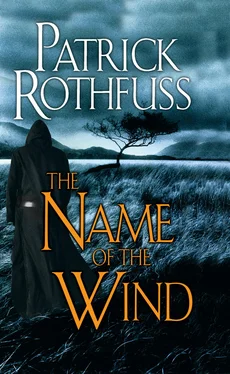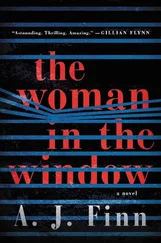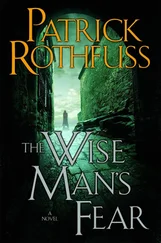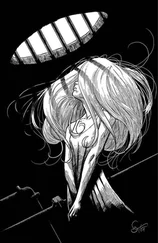“N-no,” Chronicler stammered hastily. “I’m the one—it was my fault, I’m sorry.”
Bast shook his head. “You were just surprised, but you only tried to bind me.” His expression grew a little pained. “Not that it was pleasant, mind. It feels like being kicked between your legs, but all over your body. It makes you feel sick, and weak, but it’s just pain. It wasn’t like you’d actually wounded me.” Bast looked embarrassed. “I was going to do more than hurt you. I might have killed you before I even stopped to think.”
Before an uncomfortable silence developed, Chronicler said, “Why don’t we take his word that we were both suffering from blinding idiocy, and leave it at that?” Chronicler managed a sickly smile that was heartfelt in spite of the circumstances. “Peace?” he extended his hand.
“Peace.” They shook hands with much more genuine warmth than they had earlier. As Bast reached across the table his sleeve pulled back to reveal a bruise blossoming around his wrist.
Bast self-consciously pulled his cuff back into place. “From when he grabbed me,” he said quickly. “He’s stronger than he looks. Don’t mention it to him. He’ll only feel bad.”
Kvothe emerged from the kitchen and shut the door behind himself. Looking around, he seemed surprised that it was a mild autumn afternoon rather than the springtime forest of his story. He lifted the handles of a flat-bottomed barrow and trundled it out into the woods behind the inn, his feet crunching in the fallen leaves.
Not too far into the trees was the winter’s wood supply. Cord on cord of oak and ash were stacked to make tall, crooked walls between the trunks of trees. Kvothe tossed two pieces of firewood into the wheelbarrow where they struck the bottom like a muted drum. Another two followed them. His motions were precise, his face blank, his eyes far away.
As he continued to load the barrow, he moved slower and slower, like a machine winding down. Eventually he stopped completely and stood for a long minute, still as stone. Only then did his composure break. And even with no one there to see, he hid his face in his hands and wept quietly, his body wracked with wave on wave of heavy, silent sobs.
CHAPTER EIGHTEEN
Roads to Safe Places
Perhaps the greatest faculty our minds possess is the ability to cope with pain. Classic thinking teaches us of the four doors of the mind, which everyone moves through according to their need.
First is the door of sleep. Sleep offers us a retreat from the world and all its pain. Sleep marks passing time, giving us distance from the things that have hurt us. When a person is wounded they will often fall unconscious. Similarly, someone who hears traumatic news will often swoon or faint. This is the mind’s way of protecting itself from pain by stepping through the first door.
Second is the door of forgetting. Some wounds are too deep to heal, or too deep to heal quickly. In addition, many memories are simply painful, and there is no healing to be done. The saying “time heals all wounds” is false. Time heals most wounds. The rest are hidden behind this door.
Third is the door of madness. There are times when the mind is dealt such a blow it hides itself in insanity. While this may not seem beneficial, it is. There are times when reality is nothing but pain, and to escape that pain the mind must leave reality behind.
Last is the door of death. The final resort. Nothing can hurt us after we are dead, or so we have been told.
After my family was killed, I wandered deep into the forest and slept. My body demanded it, and my mind used the first door to dull the pain. The wound was covered until the proper time for healing could come. In self-defense, a good portion of my mind simply stopped working—went to sleep, if you will.
While my mind slept, many of the painful parts of the previous day were ushered through the second door. Not completely. I did not forget what had happened, but the memory was dulled, as if seen through thick gauze. If I wanted to, I could have brought to memory the faces of the dead, the memories of the man with black eyes. But I did not want to remember. I pushed those thoughts away and let them gather dust in a seldom-used corner of my mind.
I dreamed, not of blood, glassy eyes, and the smell of burning hair, but of gentler things. And slowly the wound began to grow numb. . . .
I dreamed I was walking through the forest with plain-faced Laclith, the woodsman who had traveled with our troupe when I was younger. He walked silently through the underbrush while I kicked up more noise than a wounded ox dragging an overturned cart.
After a long period of comfortable silence I stopped to look at a plant. He came quietly up behind me. “Sagebeard,” he said. “You can tell by the edge.” He reached past me and gently stroked the appropriate part of the leaf. It did look like a beard. I nodded.
“This is willow. You can chew the bark to lessen pains.” It was bitter and slightly gritty. “This is itchroot, don’t touch the leaves.” I didn’t. “This is baneberry, the small fruits are safe to eat when red but never when shading from green to yellow to orange.
“This is how you set your feet when you want to walk silently.” It made my calves ache. “This is how you part the brush quietly, leaving no sign of your passing. This is where you find the dry wood. This is how you keep the rain off when you don’t have canvas. This is paterroot. You can eat it but it tastes bad. These,” he gestured, “straightrod, orangestripe, never eat them. The one with little knobs on it is burrum. You should only eat it if you have just eaten something like straightrod. It will make you keck up whatever’s in your stomach.
“This is how you set a snare that won’t kill a rabbit. This snare will.” He looped the string first one way, then another.
As I watched his hands manipulate the string I realized it was no longer Laclith, but Abenthy. We were riding in the wagon and he was teaching me how to tie sailors’ knots.
“Knots are interesting things,” Ben said as he worked. “The knot will either be the strongest or the weakest part of the rope. It depends entirely on how well one makes the binding.” He held up his hands, showing me an impossibly complex pattern spread between his fingers.
His eyes glittered. “Any questions?”
“Any questions?” my father said. We had stopped early for the day because of a greystone. He sat tuning his lute and was finally going to play his song for my mother and me. We had been waiting so long. “Are there any questions?” he repeated, as he sat with his back against the great grey stone.
“Why do we stop at the waystones?”
“Tradition mostly. But some people say they marked old roads—” My father’s voice changed and became Ben’s voice, “—safe roads. Sometimes roads to safe places, sometimes safe roads leading into danger.” Ben held one hand out to it, as if feeling the warmth of a fire. “But there is a power in them. Only a fool would deny that.”
Then Ben was no longer there, and there was not one standing stone, but many. More than I had ever seen in one place before. They formed a double circle around me. One stone was set across the top of two others, forming a huge arch with thick shadow underneath. I reached out to touch it. . . .
And awoke. My mind had covered a fresh pain with the names of a hundred roots and berries, four ways to light a fire, nine snares made from nothing but a sapling and string, and where to find fresh water.
I thought very little on the other matter of the dream. Ben had never taught me sailors’ knots. My father had never finished his song.
I took inventory of what I had with me: a canvas sack, a small knife, a ball of string, some wax, a copper penny, two iron shims, and Rhetoric and Logic , the book Ben had given me. Aside from my clothes and my father’s lute, I had nothing else.
Читать дальше











